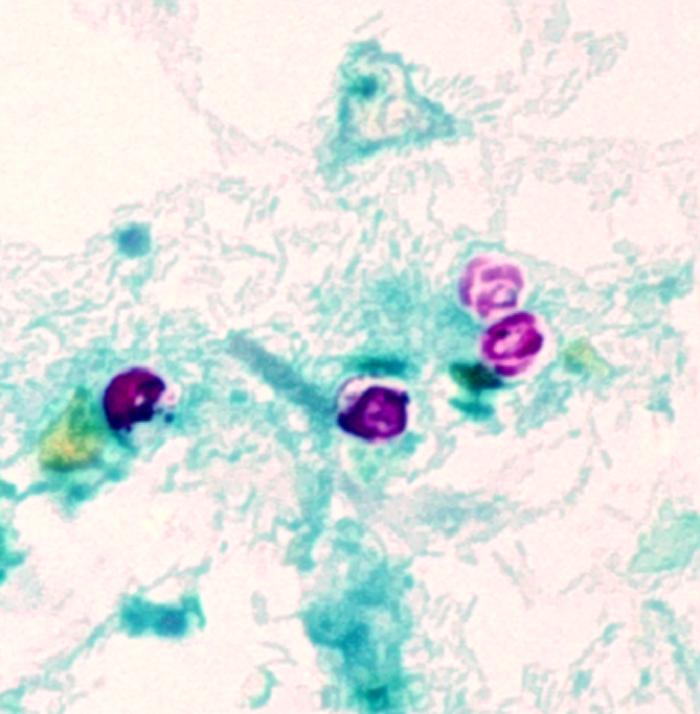A Cryptosporidium outbreak reported in south-Central areas of Sweden has sickened at least 40 and is being linked to kosläpp 2015, according to a Norran report (computer translated).

The report notes the cases are associated with kosläpp in the cities of Hjo and Skövde in Västra Götaland County. Kosläpp is when farmers let their cows on summer pasture.
Local health officials are now warning parents about letting young children petting calves at kosläpp and immediately afterwards eating food or refreshments. It is important to note they are not saying to avoid the kosläpp, just stressing the importance of washing your hands immediately after contact with the cows.
Cryptosporidiosis, or Crypto, is a microscopic parasite causing a diarrheal illness. Common symptoms include: diarrhea, stomach cramps or pain, dehydration (which is often most serious in the very young and the very old), nausea, vomiting, fever andweight loss. Symptoms usually begin 2 to 10 days after infection and normally last for one to two weeks. Once a person is infected, the parasites live in the intestines and are passed in the stool.
Prevention of crypto includes the following, according to the CDC:
- Wash hands with soap and water for at least 20 seconds, rubbing hands together vigorously and scrubbing all surfaces (hand sanitizer is not effective):
- Before preparing or eating food
- After using the toilet
- After changing diapers or cleaning up a child who has used the toilet
- Before and after tending to someone who is ill with diarrhea
- After handling an animal or animal waste
At child care facilities
- To reduce the risk of disease transmission, children withdiarrhea should be excluded from child care settings until thediarrhea has stopped.
At recreational water venues (pools, interactive fountains, lakes, ocean)
- Protect others by not swimming if you are experiencing diarrhea (this is essential for children in diapers). If diagnosed with cryptosporidiosis, do not swim for at least 2 weeks after diarrhea stops.
- Shower before entering the water.
- Wash children thoroughly (especially their bottoms) with soap and water after they use the toilet or their diapers are changed and before they enter the water.
- Take children on frequent bathroom breaks and check their diapers often.
- Change diapers in the bathroom, not at the poolside.
Around animals
- Minimize contact with the feces of all animals, particularly young animals.
- When cleaning up animal feces, wear disposable gloves, and always wash hands when finished.
- Wash hands after any contact with animals or their living areas.
Outside
- Wash hands after gardening, even if wearing gloves.
Immunocompromised persons
- Avoid close contact with any person or animal that has cryptosporidiosis. Cryptosporidiosis can become a life threatening disease for immunocompromised persons.
- Do not handle animal feces because infection can be life threatening for immunocompromised persons.

